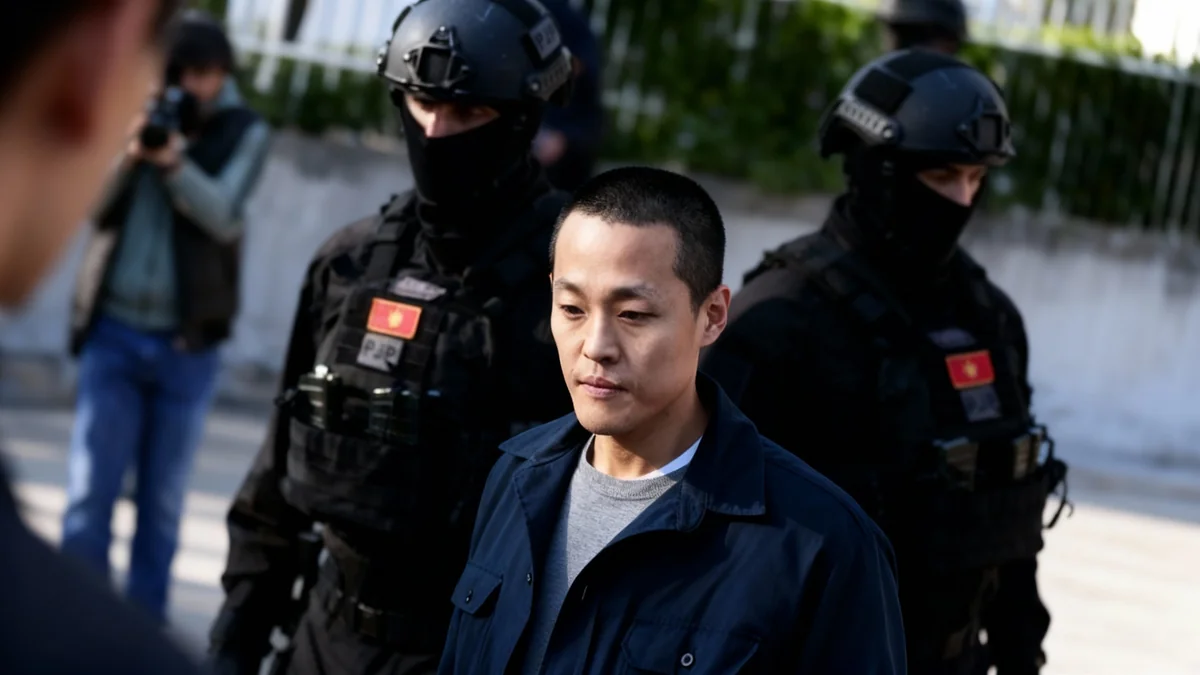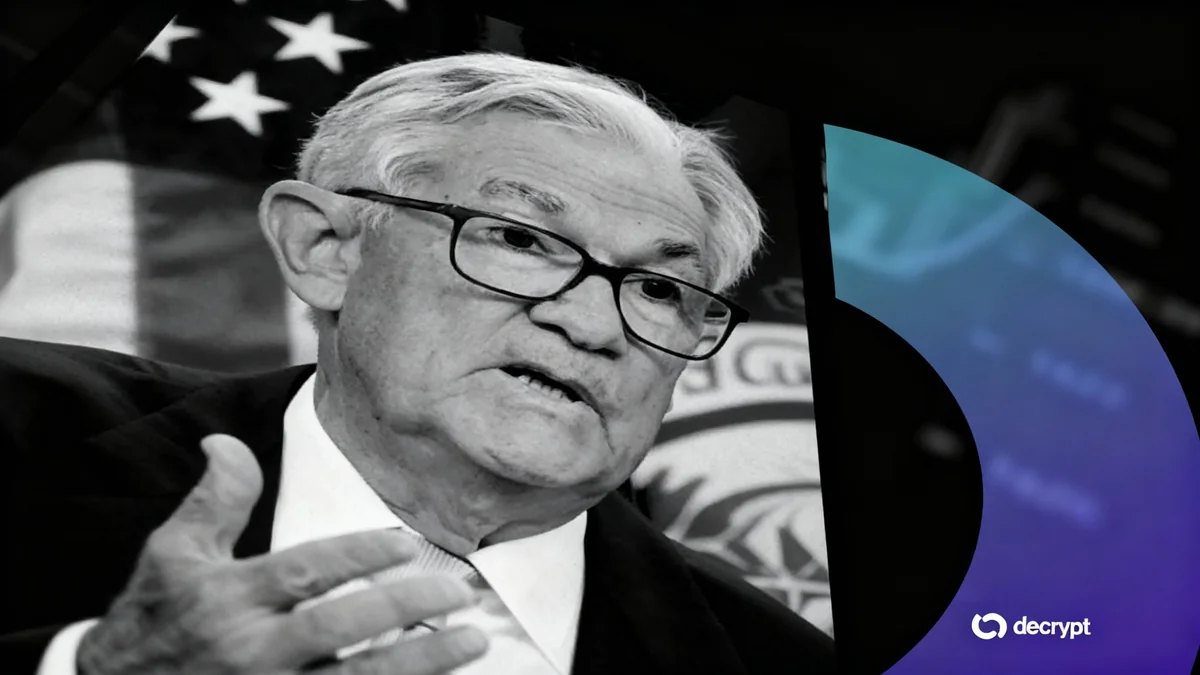The U.S. Commodity Futures Trading Commission (CFTC) has announced significant new appointments to its Digital Asset Markets Subcommittee (DAMS), bringing in top executives from major financial institutions and leading cryptocurrency firms. Scott Lucas, the head of digital assets at JPMorgan, has been named co-chair of the influential advisory group.
The appointments, revealed by Acting Chair Caroline D. Pham, also include leaders from Uniswap Labs, Aptos Labs, Chainlink Labs, and BNY. This move signals a deeper engagement between U.S. regulators and the rapidly evolving digital asset industry, combining expertise from both traditional and decentralized finance.
Key Takeaways
- JPMorgan's head of digital assets, Scott Lucas, was appointed co-chair of the CFTC's Digital Asset Markets Subcommittee.
- New members include executives from Uniswap, Aptos, Chainlink, and BNY.
- The appointments underscore a growing collaboration between regulators, Wall Street, and the crypto industry.
- The subcommittee's role is to advise the CFTC on policy for cryptocurrency and blockchain technology.
New Leadership for Digital Asset Subcommittee
The CFTC has restructured the leadership of its Digital Asset Markets Subcommittee by appointing Scott Lucas of JPMorgan as co-chair. He will serve alongside Sandy Kaul, an executive vice president at Franklin Templeton. Together, they succeed Caroline Butler, the previous co-chair.
In a statement regarding his new role, Lucas emphasized collaboration.
“We look forward to working with the Commission and broader industry partners to help shape clear and effective regulatory frameworks in a well-structured digital asset market,” he said.
Sandy Kaul also commented on the subcommittee's objectives, stating her goal is to continue advancing digital asset innovation into the mainstream. She stressed the importance of doing so “with prudent and well-designed consumer protections, enabling greater efficiencies and opportunities for all investors.”
Four Industry Experts Join the Ranks
Alongside the new leadership, four prominent figures from the digital asset sector have been added as members to the subcommittee. These appointments bring direct operational and legal expertise from some of the industry's most significant companies.
The new members are:
- Katherine Minarik, Chief Legal Officer at Uniswap Labs
- Avery Ching, Co-founder and Chief Technology Officer of Aptos Labs
- James J. Hill, Managing Director and Head of Structure Innovation at BNY
- Ben Sherwin, General Counsel at Chainlink Labs
What is the Digital Asset Markets Subcommittee?
The Digital Asset Markets Subcommittee (DAMS) was established to provide the CFTC with expert guidance on issues related to cryptocurrency, blockchain technology, and tokenized markets. Its primary functions are to advise the agency on potential risks and opportunities, help develop policy recommendations, and facilitate dialogue between traditional financial systems and the emerging world of decentralized finance.
Bridging Traditional Finance and Crypto
The latest appointments highlight a significant trend: the increasing convergence of traditional Wall Street institutions and the digital asset ecosystem. The inclusion of executives from JPMorgan and BNY Mellon alongside leaders from native crypto firms like Uniswap and Chainlink demonstrates a concerted effort by regulators to foster a comprehensive dialogue.
This collaboration is crucial as major financial firms deepen their involvement in blockchain technology. For instance, BNY Mellon has been actively exploring tokenized money-market funds through a partnership with Goldman Sachs. This initiative allows BNY clients to use products where ownership is recorded on a private blockchain.
Wall Street's Digital Asset Push
JPMorgan has also been a key player, exploring stablecoins and crypto-backed lending services. The firm's deep involvement in the sector reflects a broader industry shift toward integrating blockchain for settlement and asset tokenization, despite public skepticism from some of its top leadership in the past.
The appointments suggest that regulators are seeking a balanced perspective to create rules that can accommodate innovation while ensuring market stability and investor protection. This blend of expertise is vital for navigating the complexities of tokenizing real-world assets, developing stablecoin frameworks, and building new settlement infrastructures.
Regulatory Context and Future Outlook
These developments at the CFTC are occurring within a broader context of evolving U.S. policy toward digital assets. Recent legislative actions, such as the House of Representatives passing market-structure and anti-CBDC bills, indicate a growing momentum for establishing clearer regulatory guardrails for the industry.
The CFTC, under Acting Chair Caroline D. Pham, appears to be aligning with this direction. Pham, who has served as a Commissioner since April 2022 and whose term extends to April 2027, has initiated a “Crypto Sprint.” This initiative aims to implement recommendations from the President’s Working Group on Digital Asset Markets.
A key focus of this effort is to delineate the jurisdictional responsibilities between the CFTC and the Securities and Exchange Commission (SEC). Clarifying which agency oversees different types of digital assets has been a long-standing challenge for the industry and is a central goal for policymakers.
According to a July report from the President's Working Group, clear recommendations were made to resolve this jurisdictional ambiguity. The integration of industry leaders into the CFTC's advisory process is seen as a practical step toward creating informed and effective regulations that can support American leadership in financial technology.





